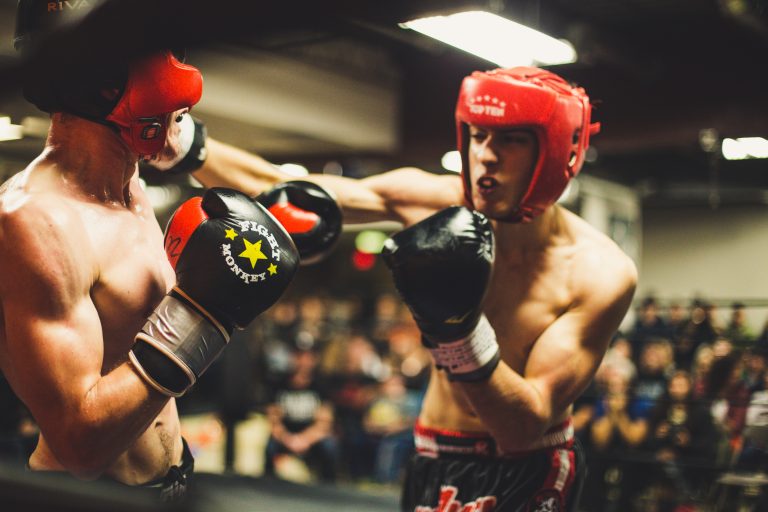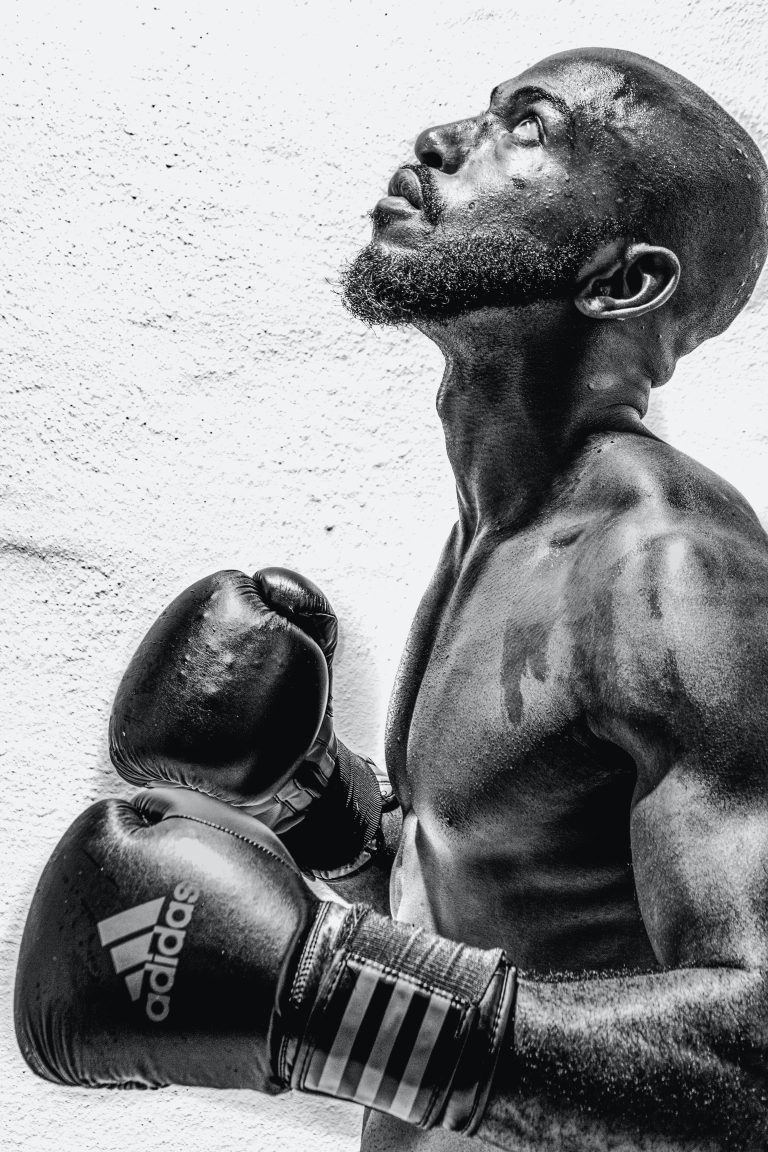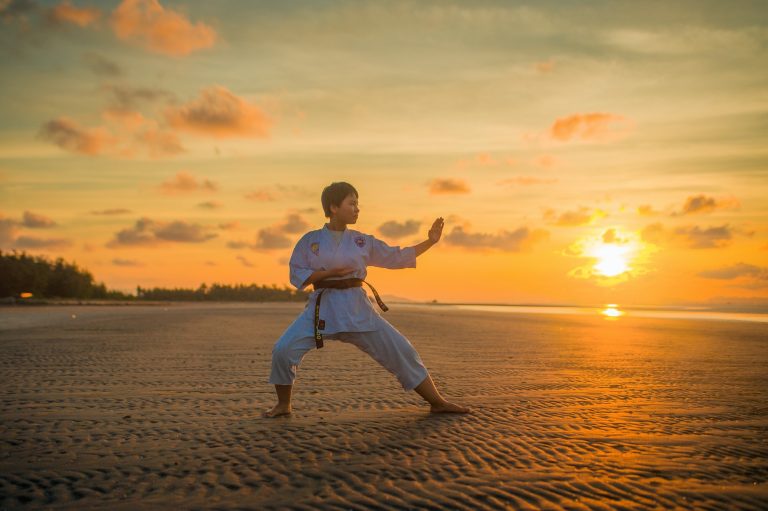How Can Karate Help You?
Karate is an ancient martial art that has stood the test of time. It is a form of self-defense that requires discipline, focus, and determination. Karate has many benefits for both physical and mental health, and it is a popular sport for people of all ages. In this article, we will explore how karate can help you and why you should consider taking up this martial art.
Physical Benefits of Karate
One of the primary benefits of practicing karate is the improvement of physical health. This martial art is an excellent workout that helps to develop strength, flexibility, and cardiovascular fitness. Karate involves a variety of movements, including kicks, punches, and blocks, which helps to engage all of the major muscle groups in the body.
Regular karate practice can help to improve your overall body composition, as well as increase your endurance and stamina. In addition, karate can also be a useful tool for weight loss, as one hour of intense karate training can burn up to 1000 calories.
Mental Benefits of Karate
In addition to its physical benefits, karate is also a fantastic way to improve your mental health. This martial art requires focus, discipline, and concentration, which can help you to develop these skills in other areas of your life. Karate also teaches you to stay calm and focused under pressure, which can be beneficial in any high-stress situation.
Karate can also be a useful tool for managing stress, anxiety, and depression. The physical activity of this martial art increases the production of endorphins, which are natural mood enhancers. The focus and discipline required in karate practice can also help you to stay present and mindful, reducing feelings of overwhelm and anxiety.
Self-Defense Benefits of Karate
One of the primary reasons people choose to practice karate is for its self-defense benefits. Karate teaches you how to defend yourself effectively in a variety of situations, including both armed and unarmed attackers. The techniques used in karate are designed to be quick and efficient, allowing you to neutralize a threat quickly and safely.
In addition to learning physical self-defense skills, karate also teaches you to be aware of your surroundings and to avoid dangerous situations whenever possible. This knowledge can be valuable in all areas of your life, from walking alone at night to traveling in unfamiliar places.
Social Benefits of Karate
Karate is also a social activity that can bring many benefits to your life. Joining a karate class allows you to meet new people, make friends, and become a part of a community. This martial art is often taught in a group setting, which can help you to develop teamwork and communication skills.
In addition, karate can also be a family activity. Many families practice karate together, which provides an opportunity for quality time together while also promoting physical and mental health.
How Can Karate Help You: Frequently Asked Questions
Karate is a martial art that originated in Japan in the early 20th century. It has gained popularity around the world as a form of self-defense, physical fitness, and mental discipline. If you are interested in karate, you may have some questions about how it can benefit you. Here are some of the most frequently asked questions about how karate can help you.
Q: What are the physical benefits of karate?
Karate is a full-body workout that can help you build strength, flexibility, and endurance. The various techniques involved in karate such as punching, kicking, and blocking require the use of different muscle groups in the body. This means that practicing karate regularly can help you tone your muscles and improve your cardiovascular health. Moreover, karate can also help you improve your balance, coordination, and posture, which can help reduce the risk of injury in your daily life.
Q: Can karate help me learn self-defense?
Yes, karate is a martial art that emphasizes self-defense. In fact, the primary goal of karate is to develop skills for self-protection. Karate teaches you how to use your body in different ways to block attacks and deliver powerful strikes to your opponent. Through karate training, you can learn how to defend yourself effectively and develop the confidence to make quick decisions in challenging situations.
Q: How can karate help me mentally?
Karate is not just about physical training, but also mental discipline. Through practices such as meditation and visualization, karate can help you develop focus, concentration, and mental toughness. In addition, karate can also help you manage stress, anxiety, and depression by promoting mental calmness and relaxation.
Q: Can karate help me build self-confidence?
Yes, karate can definitely help you build self-confidence. Through karate training, you will develop a sense of self-awareness and self-control, which can help you understand your abilities and limitations. Moreover, the progress you make in karate such as mastering a new technique, earning a new belt rank, or winning a competition can give you a sense of achievement and boost your self-esteem.
Q: Do I need any prior experience to start karate?
No, you don’t need any prior experience to start karate. Karate is open to people of all ages and skill levels. If you are a beginner, you can start with the basics and gradually work your way up to more advanced techniques. Most instructors will provide you with the necessary guidance and support to help you progress at your own pace.
Q: Can karate be practiced by people with disabilities?
Yes, karate can be practiced by people with disabilities. In fact, karate can be a great form of physical and mental therapy for people with disabilities. Karate instructors can adapt the techniques to the specific needs and abilities of the student. Moreover, karate can also provide a sense of empowerment and social interaction for people with disabilities.
Q: Is karate safe?
Yes, karate is generally safe when practiced under the guidance of a trained instructor. However, like any physical activity, there is always a risk of injury. To minimize the risk of injury, it is important to practice proper technique, wear protective gear such as gloves and shin guards, and warm up properly before training.
Q: How can I find a karate school?
You can find a karate school in your area by doing a simple online search or asking for referrals from friends or family members. When choosing a karate school, it is important to consider factors such as the instructor’s qualifications, the level of experience of the students, and the safety policies of the school. You can also visit the school and observe a class to get a better sense of the training methods and environment.
How can Karate help you?
Karate is a traditional martial arts discipline that originated in Okinawa, Japan. It teaches self-defense techniques, physical conditioning, and mental discipline. Although karate is often associated with violence, it provides a range of benefits to those who practice it.
In this guide, we will explore how karate can help you, and provide you with step-by-step instructions on how to get started.
Step 1: Find a Karate School
The first step to learning karate is to find a reputable karate school. Do some research online and read reviews from other students. Choose a school with experienced instructors who are willing to answer your questions and provide you with guidance.
Step 2: Choose the Right Karate Style
There are different styles of karate, each with its own unique techniques and training methods. It is important to choose a style that suits your goals and physical abilities. Some common karate styles include:
- Shotokan Karate
- Shito Ryu Karate
- Goju Ryu Karate
- Wado Ryu Karate
Step 3: Get Started with Basic Techniques
Once you have chosen a karate school and style, it is time to get started with basic techniques. The following are some of the essential karate moves that you should learn:
- Stances: Karate stances help to improve balance and stability. Some common stances include the horse stance, front stance, and back stance.
- Punches: Karate punches involve using the arm to strike an opponent. Some common punches include the straight punch, uppercut, and hook punch.
- Kicks: Karate kicks are powerful strikes that involve using the legs. Some common kicks include the front kick, sidekick, and roundhouse kick.
- Blocks: Karate blocks are used to defend against an opponent’s attack. Some common blocks include the inside block, outside block, and high block.
Step 4: Practice Regularly
Karate requires regular practice to master the techniques and build physical conditioning. It is recommended to practice at least two to three times a week for an hour each session. Consistent practice will help you to improve your skills and build confidence.
Step 5: Focus on Mental Discipline
Karate is not only a physical discipline but also a mental one. It teaches self-control, focus, and perseverance. Focus on the mental discipline aspect of karate by practicing meditation or mindfulness.
Step 6: Set Goals and Monitor Progress
Setting goals and monitoring your progress is another essential step in improving your karate skills. Set achievable goals and track your progress by keeping a journal or using a fitness tracker. Celebrate your achievements and push yourself to the next level.
Conclusion
In conclusion, karate can help you develop physical and mental discipline, build confidence, and improve your self-defense skills. By following the steps outlined in this guide, you can start your journey towards becoming a skilled karate practitioner. Remember to choose a reputable karate school, practice regularly, and focus on mental discipline. With dedication and hard work, you can achieve your karate goals.
Inhaltsverzeichnis






